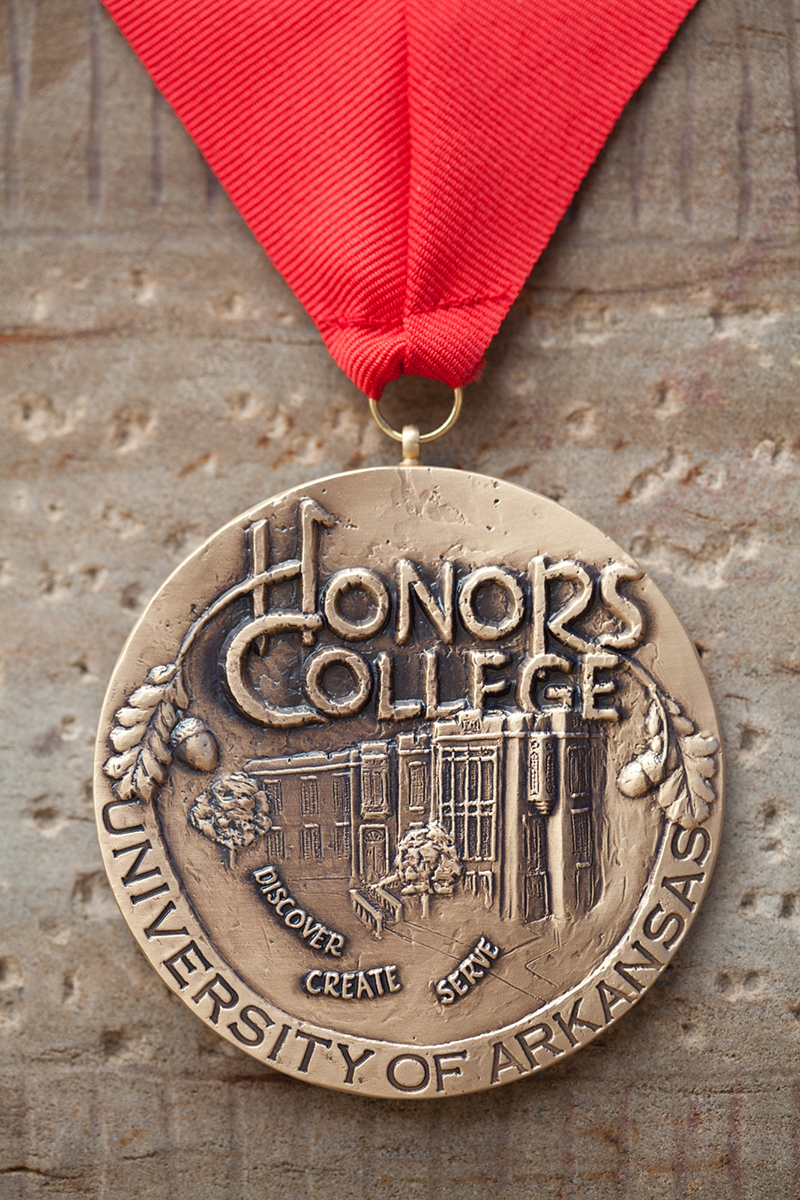FAYETTEVILLE, Ark. – The University of Arkansas Honors College will honor six faculty members who have set the bar especially high for teaching and leadership at the annual Honors College Faculty Reception.
Honors faculty members go the extra mile for honors students. In addition to teaching honors courses, sections and special colloquia, these professors put in hours of work behind the scenes, mentoring honors students one-on-one, interviewing nervous fellowship applicants and writing countless letters of recommendation.
“These six faculty members have touched students’ lives and enriched the honors experience here on campus,” said Lynda Coon, dean of the Honors College. “We deeply appreciate their dedication and look forward to recognizing their efforts at the reception next week.”
Dean Coon will present a bronze medallion to this year’s Distinguished Faculty Award and Distinguished Leadership Award recipients, who will be introduced by the deans of their respective colleges. Each winner also will receive $1,000 in academic funding.
The 2016 recipients of the Honors College Distinguished Faculty Award are:
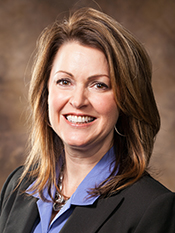 Kimberly Frazier, associate professor of communication disorders, the College of Education and Health Professions. Frazier’s research in the areas of phonology, autism, and social pragmatic language disorders attracts widespread student interest.
Kimberly Frazier, associate professor of communication disorders, the College of Education and Health Professions. Frazier’s research in the areas of phonology, autism, and social pragmatic language disorders attracts widespread student interest.
She has been a member of the college’s Honors Council for several years and has developed an honors course on critical thinking. Her students have won State Undergraduate Research Fellowships and Honors College research grants and received high accolades for their research, including a feature in The Colleague, awards for best project at the College of Education and Health Professions Honors Symposium, and acceptance for peer-reviewed presentations given at the American Speech and Hearing Association annual convention.
This year all four seniors whom Frazier mentors will present their research at the association’s convention in November. Additionally, three of her students will present their research to international audiences in Trinidad and Tobago, Italy, and Canada. All three of these students have also been invited and will submit their papers for publication in international journals. Frazier received the Outstanding Mentoring Award in 2009 and 2011 and the Innovative Teaching Award in 2015 as well as the Order of Omega 2012-2013 Outstanding Faculty Member award.
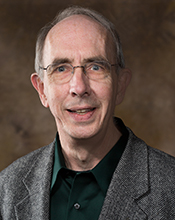 Roger Koeppe, distinguished professor of chemistry and biochemistry, J. William Fulbright College of Arts and Sciences. Koeppe’s research focuses on membrane biophysics with a special emphasis on protein engineering and protein/lipid interactions. He has mentored more than 35 honors students during his 37 years at the University of Arkansas.
Roger Koeppe, distinguished professor of chemistry and biochemistry, J. William Fulbright College of Arts and Sciences. Koeppe’s research focuses on membrane biophysics with a special emphasis on protein engineering and protein/lipid interactions. He has mentored more than 35 honors students during his 37 years at the University of Arkansas.
His research mentorship has proved to be especially fruitful for his students: four of them have won National Science Foundation Pre-Doctoral Fellowships, seven have been selected for the Goldwater Scholarship, and seven have published papers with Koeppe. Most recently, Bodenhamer Fellow Armin Mortazavi coauthored a paper that was featured on the cover of ChemBioChem (March 2016); he was the first of Koeppe’s students to publish research while still an undergraduate. Jordana Thibado (B.S. in chemistry, magna cum laude, 2016) currently has a manuscript under review at Biochemistry, a journal published by the American Chemical Society.
Koeppe has served as honors advisor for the Department of Chemistry and Biochemistry for the past 12 years. He has previously been recognized with an Alumni Association Faculty Distinguished Achievement Award for Research in 1992 and the Fulbright College Master Researcher Award in 2000. Koeppe was a Fulbright America Scholar to The Netherlands in 1992.
 Carl Smith, associate professor of landscape architecture, Fay Jones School of Architecture and Design. Smith is a chartered landscape architect in the United Kingdom and has wide, international experience in the practice, teaching and research of landscape architecture and urban design.
Carl Smith, associate professor of landscape architecture, Fay Jones School of Architecture and Design. Smith is a chartered landscape architect in the United Kingdom and has wide, international experience in the practice, teaching and research of landscape architecture and urban design.
Over the past eight years he has developed honors sections and new class offerings and mentored a series of talented design students. They have published their research in Inquiry and Plot, and coauthored articles published in the proceedings of the Council of Educators in Landscape Architecture and The International Journal of Sustainability Education.
His students have won numerous grants and scholarships, and one of them, Hannah Moll, received two awards from the Arkansas and Central States chapters of the American Society of Landscape Architects, a rare honor for an undergraduate student. Smith received the Howell-Vancuren Outstanding Faculty Teaching Award in 2009 and the Tau Sigma Delta Honor Society Medal for Distinction in Landscape Architectural Education in 2011.
Other honors include his recognition as a Chancellor’s Outstanding International Faculty and Researcher in 2011, as a Senior of Significance Mentor in 2015 and Outstanding Mentor by the Alumni Association and Office of Nationally Competitive Awards, respectively in 2016.
The 2016 recipients of the Honors College Distinguished Leadership Award are:
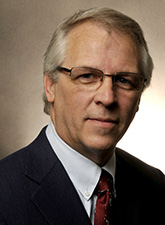 Nick Anthony, professor, poultry breeding and genetics, Dale Bumpers College of Agricultural, Food and Life Sciences. Anthony chaired and managed the committee that led to the development of the honors program in Bumpers College, and served as the program’s first director until 2002.
Nick Anthony, professor, poultry breeding and genetics, Dale Bumpers College of Agricultural, Food and Life Sciences. Anthony chaired and managed the committee that led to the development of the honors program in Bumpers College, and served as the program’s first director until 2002.
Anthony has remained active as a member of the Honors Advisory Committee and the College Curriculum Committee, where he has helped to oversee the program’s growth from an initial cohort of about 24 students in 1999 to 191 students enrolled for Fall 2016. Over the past 17 years he has developed and taught a host of honors courses on subjects including debate, ethics and honors project proposal development. In partnership with Gisela Erf, he also received USDA grant funding to develop a course, Laboratory Rotations in Agriculture, that remains part of the honors curriculum. Anthony has mentored two honors student theses and served on eight additional honors committees.
He received the John W. White Award for Outstanding Teaching in 1997 and the Alumni Society Outstanding Advisor in 1999 from Bumpers College. He has also been recognized with the Alpha Zeta Excellence in Teaching Award in 1992, the Teaching Award of Merit, National Association of Colleges and Teachers of Agriculture in 1997 and the Purina Mills Award for Teaching, Poultry Science Association in 1997.
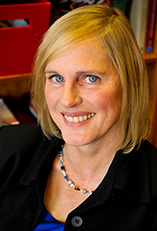 Carol Gattis, associate dean emeritus, Honors College. Gattis’ academic research focuses on recruiting and retaining students in science, technology, engineering and mathematics, with an emphasis on expanding diversity in these areas.
Carol Gattis, associate dean emeritus, Honors College. Gattis’ academic research focuses on recruiting and retaining students in science, technology, engineering and mathematics, with an emphasis on expanding diversity in these areas.
She worked with engineering faculty and staff to develop the Engineering Career Awareness Program, an award-winning scholarship and mentoring program designed to increase diversity in the field of engineering. She has also established a national reputation as a promoter of STEM education in public schools. Gattis has played key roles in establishing the honors program in the College of Engineering, expanding diversity across campus, and boosting participation in study abroad.
During her tenure at the Honors College Gattis launched new initiatives in study abroad and service learning and created new grants to support honors students and faculty, including airfare grants, international research grants, and faculty equipment and technology grants. She also led the charge to create online, paperless applications for fellowships and grants and sought out every opportunity to foster efficiency and cooperation between the Honors College and the six honors programs across campus. She has also been a tireless advocate for the Honors College staff, helping them expand their skill sets and flourish professionally.
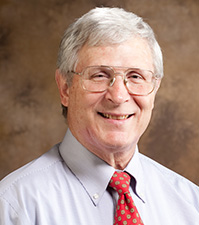 John Norwood, professor and Nolen E. Williams Lecturer in accounting, Sam M. Walton College of Business. Norwood helped to launch the honors program in Walton College in 1999, which has grown from 70 freshmen and sophomores to a robust enrollment of 584 honors students in Fall 2016.
John Norwood, professor and Nolen E. Williams Lecturer in accounting, Sam M. Walton College of Business. Norwood helped to launch the honors program in Walton College in 1999, which has grown from 70 freshmen and sophomores to a robust enrollment of 584 honors students in Fall 2016.
His research focuses on commercial law and the relationship between banks and the owners of checking accounts. He has mentored about 25 honors students on a wide range of thesis topics, including internet gambling, fantasy sports, electronic contracting, the fraudulent use of domain names, and Fayetteville’s Human Rights Ordinance.
In 2015, with honors student Phillip Meek, he also coauthored a paper that appeared in the online Journal of Legal, Ethical and Regulatory Issues. He has taught honors Legal Environment and honors Principles of Accounting, and also started a program where outstanding honors students get an early invitation to Beta Gamma Sigma, the business honor society.
About the Honors College: The University of Arkansas Honors College was established in 2002 and unites the university’s top undergraduate students and professors in a learning environment characterized by discovery, creativity and service. Each year the Honors College awards up to 90 freshman fellowships that provide $70,000 over four years, and more than $1 million in undergraduate research and study abroad grants. The Honors College is nationally recognized for the high caliber of students it admits and graduates. Honors students enjoy small, in-depth classes, and programs are offered in all disciplines, tailored to students’ academic interests, with interdisciplinary collaborations encouraged. Fifty percent of Honors College graduates have studied abroad – three times the national average – and one hundred percent of Honors College graduates have engaged in mentored research.
About the University of Arkansas: The University of Arkansas provides an internationally competitive education for undergraduate and graduate students in more than 200 academic programs. The university contributes new knowledge, economic development, basic and applied research, and creative activity while also providing service to academic and professional disciplines. The Carnegie Foundation classifies the University of Arkansas among only 2 percent of universities in America that have the highest level of research activity. U.S. News & World Report ranks the University of Arkansas among its top American public research universities. Founded in 1871, the University of Arkansas comprises 10 colleges and schools and maintains a low student-to-faculty ratio that promotes personal attention and close mentoring.
Topics
- Agriculture
- Architecture
- Awards
- Business & Finance
- Education
- Engineering
- Law & Justice
- Research & Innovation
- Science
- Events
- Design
- Fay Jones School of Architecture and Design
- Dale Bumpers College of Agricultural, Food & Life Sciences
- College of Education and Health Professions
- College of Engineering
- Sam M. Walton College of Business
- Honors College
Contacts
Lynda Coon, dean
Honors College
479-575-7678,
Kendall Curlee, director of communications
Honors College
479-575-2024,
